
views
X
Research source
Nexium may additionally cause side effects including headaches, nausea, diarrhea, rashes, and interactions with other medications. Before you stop taking Nexium, visit your doctor to make sure that it is a healthy decision. If you have heartburn, there are many things you can do to reduce flares after you stop. You can even try natural remedies, but you should get your doctor’s approval first.
Visiting Your Doctor

Make an appointment with your doctor. Before stopping any medication, always talk to your doctor first. Your doctor can help you with any side effects that might result from stopping. They may even prescribe you a different medication. If you have gastroesophageal reflux disorder (GERD) or Barrett’s Esophagus, your doctor may determine that you need to remain on a PPI like Nexium. Most of the time, you will not need to rush stop getting off Nexium. Instead, you and your doctor will work out a plan to get you on progressively lower doses. This increases your chance of success.
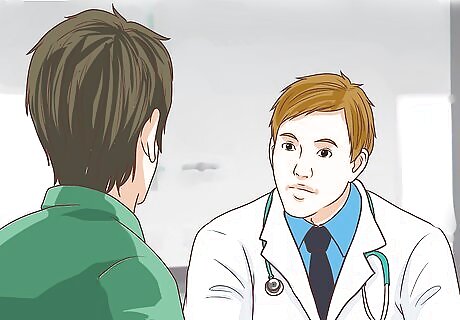
Tell your doctor why you want to stop Nexium. In most cases, you should not stop a medication before you have finished a full course. If you have unpleasant side effects, however, your doctor should know. Common side effects of Nexium include: Stomach pain Diarrhea Headache Nausea Dizziness Dry mouth
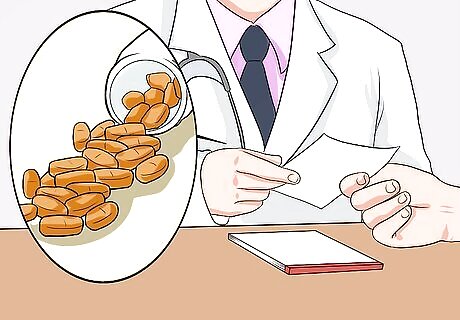
Get a different prescription. Stopping Nexium suddenly can cause an increase in stomach acid, heartburn, or a return of symptoms. Depending on what condition you were using Nexium to treat, your doctor may prescribe a different medication. Nexium is most commonly used to treat heartburn and acid reflux. In this case, you may be prescribed H-2 blockers, like Zantac, instead. If you were on Nexium for an H. Pylori infection, your doctor may suggest an H-2 blocker or a bismuth subsalicylate medication, like Pepto-Bismol. If you have peptic ulcers, your doctor may prescribe an H-2 blocker and a protectant like sucralfate (Carafate). In addition, you can try an over-the-counter antacid such as TUMS or generic calcium carbonate to relieve your symptoms. Talk to your pharmacist about finding the right treatment for your symptoms.
Taper off Nexium gradually. Lower your Nexium dose for 2-4 weeks. If you were taking one pill a day, take one pill every other day. If you were taking two pills a day, take one pill a day for 1-2 weeks, and then take one pill every other day for another 1-2 weeks. If you find you are still struggling with severe symptoms, you can taper off even more gradually. Instead of 2-4 weeks, plan for 8-12 weeks. Use a diary, calendar, or planning app to help you remember when to take your next dose.
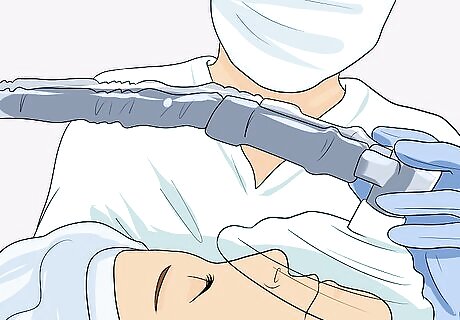
Consider surgery. In some cases, conditions like GERD can be fixed through surgery. These are invasive surgeries that will require long recoveries, but they may be able to prevent the need for you to take PPIs in the future. Before you make this decision, have a long talk with your doctor about the risks and recovery times associated with surgery. You may need to stay in the hospital up to a week for this surgery. Bleeding and scarring may occur as well.
Treating Your Heartburn Without Nexium
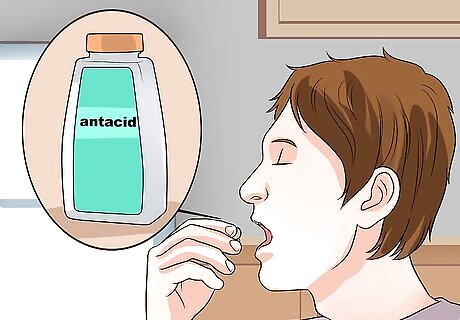
Take an over-the-counter antacid. Even if you have never had acid reflux before, stopping PPIs like Nexium can sometimes cause symptoms to start. To give you relief, take an over-the-counter antacid, such as Tums or Rolaids. Always consult your doctor about whether it is ok to take over-the-counter medications or not.
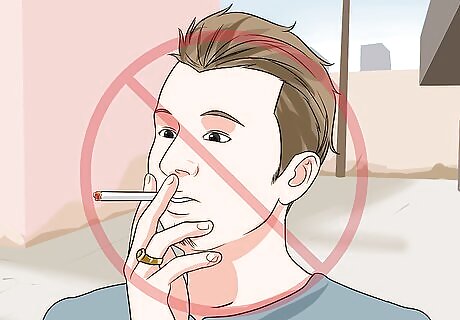
Stop smoking. Smoking can increase acid reflux while affecting how well your esophageal sphincter works. Talk to your doctor about ways to quit smoking. You may want to avoid secondhand smoke as well.
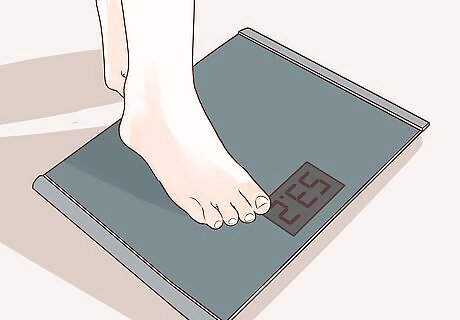
Lose weight. Maintaining a healthy weight is an important tool in reducing the frequency of heartburn. If you are overweight, talk to your doctor or a registered dietician about losing weight. Eating smaller meals will help you lose weight, and it can also help prevent heartburn. Reduce your food portions. If you feel full, stop eating.
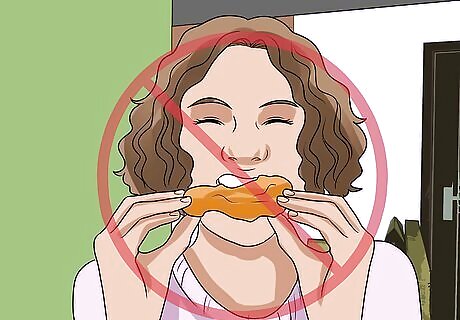
Avoid acidic and aggravating foods. Certain foods can trigger or worsen heartburn. To reduce the frequency of your heartburn, try cutting out the following foods and drinks from your diet: Garlic Onions Citrus Fried or spicy food Coffee Soda and other carbonated drinks Alcohol Tomatoes Chocolate
Avoid eating meals 2-3 hours before bed. Eating heavy meals before going to bed can exacerbate acid reflux. Avoid eating large meals 2-3 hours before you go to bed whenever possible.
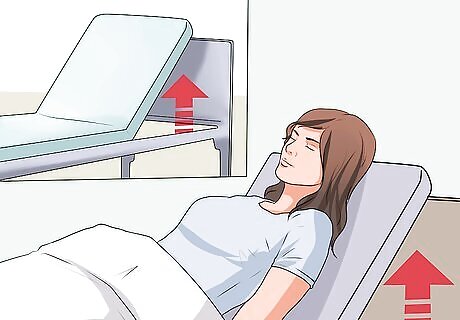
Prop yourself up while you sleep. To reduce heartburn at night, place a wedge between your mattress and box spring to raise the head of your bed up by about 6–9 inches (15–23 cm). You can also place wooden or cement blocks under the bed itself. Propping yourself up with pillows is not as effective as raising up part of your bed.
Wear loose clothing when possible. Tight clothes can put extra pressure on your stomach. This can cause or worsen heartburn symptoms. Wear loose clothing whenever possible to help mitigate this.
Trying Natural Remedies
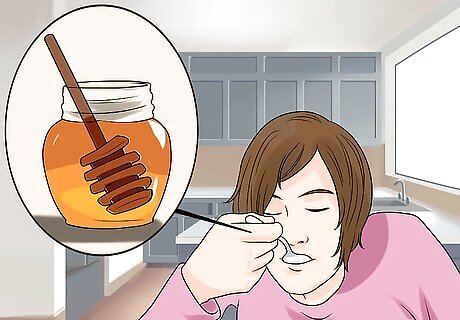
Swallow a spoonful of apple cider vinegar and honey. While the effectiveness of apple cider vinegar on acid reflux has not been studied, many people report improvement after taking it. Take one teaspoon of apple cider vinegar mixed with a teaspoon of honey after every meal.
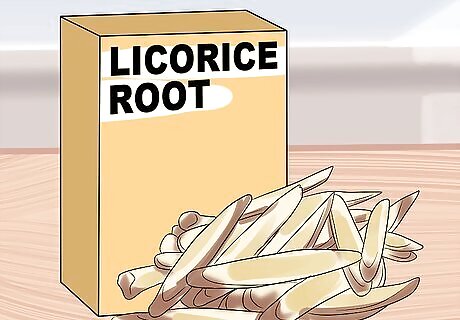
Chew a licorice tablet. Licorice tablets may help treat peptic ulcers. They may also be used in combination with some medications to treat H. Pylori infections. These can be bought at health food stores or online. Talk to your doctor first about whether licorice tablets will interact with your medications.
Try relaxation techniques. Lowering stress and anxiety may help reduce the symptoms of GERD. Try therapies such as daily meditation or breathing exercises to help you relax and manage your daily stress levels.
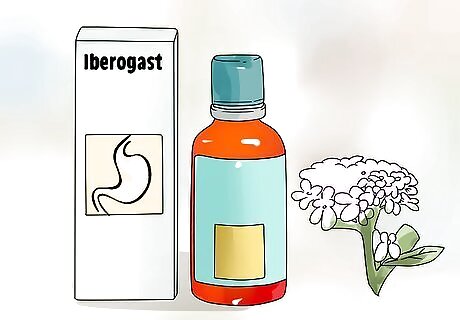
Take a dose of iberogast. Iberogast is a liquid supplement containing nine different herbs. It may help reduce acid and treat dyspepsia by preventing intestinal spasms and toning smooth muscles within the digestive tract. Check with your doctor to make sure it won’t interfere with your medications. Iberogast contains angelica, caraway, mustard plant, chamomile, celandine, lemon balm, licorice, milk thistle, and peppermint.













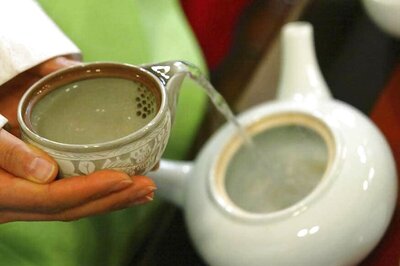
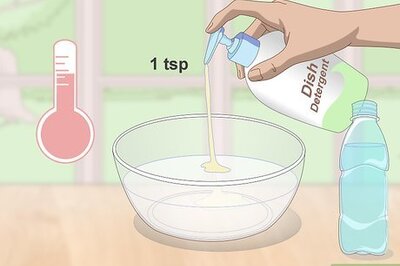





Comments
0 comment